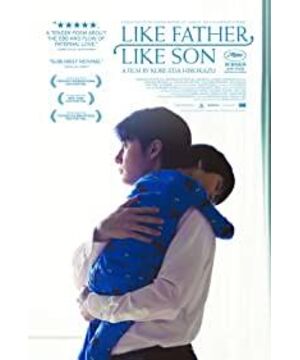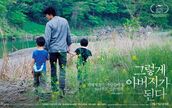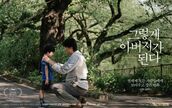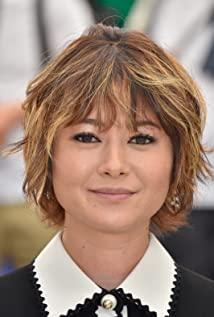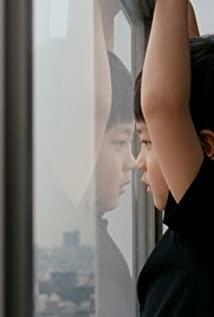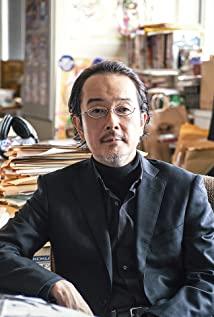Is a lot of a bad dad? He has a stable job with a good income and can support a family of three living in a high-end apartment with a view of the sky tree and lead a prosperous life. His social status determines that he has an elite-looking vision for the future education of Kyodo. He is not addicted to alcohol and tobacco, staying overnight, not having an affair, and not having domestic violence. No matter how you look at it, he can't be regarded as a bad father.
But are many good dads? He is stern and rigid, unsmiling, and mean to accompany him. In his parent-child relationship with Qingduo, he talked about how to make Qingduo "become stronger." What he is most dissatisfied with is Qingdo's "will not be reconciled even if he loses" Wen Tun's character, which is a weak performance in his eyes. It seems that during this parenting process, his sense of accomplishment and satisfaction for "raising an excellent child by himself" is far better than the time spent with Kyodo.
In fact, this seems to be a problem that exists in many modern parents, that is, a problem of utilitarianism. It is just that in the movie Supervisor, Masaharu Fukuyama performed such a slightly extreme father image, and then in a small probability event, The father grew rapidly.
A lot of obsession with patriarchy in the family prevented him from putting down his figure and playing with his children like Mr. Saimu. The tall and perfect image as a father is really important to him. His obsession with playing the role of a father goes far beyond thinking about how to truly participate in Qingdo's life. The subtle sense of distance between Keita and Keita seemed to him to be a manifestation of his father's majesty. Therefore, when he cast a top-down view of the Saimu family, he said it was an elite sneer at the civilian class, and when he was younger, he was not authoritative or stable enough for Mr. Saimu. The image of a father who is not good enough has natural suspicion and disdain.
A lot of hatred for his father did not affect him like a father. The superstition of blood relationship, on the contrary, let him breathe a sigh of relief at Qingduo's inferiority: Ah, it turned out to be a genetic problem. As long as you shed the same blood, you will become the same person as me. To some extent, many deny the plasticity of acquired education to children.
But Mr. Saimu is very clear: "It's incredible. I looked at Qingdo's face and gave him the name "Liuqing", but now this kid should be called "Kingdo" no matter how you look at it. "
At that time many will probably stand aside it is not too happy, because his body flow with the blood of sulfur Ching, also marked a vegetarian wood mediocre mark. He stared at the drink cup with the straw being bitten, with a complicated expression on his face.
Although I don't want to admit it, the current Liuqing should be called Liuqing no matter how you look at it.
This allowed him to rectify Liu Qing's "shortcomings" non-stop, and to "become" his own son in a hurry.
Many have absolute rationality in the matter of exchanging children, so the running-in with their biological son has been carried out step by step and planned. Ironically, his obsession with family blood relationship led to his indifference to his wife and Kyodo. What really allowed Much to grow up was Liuqing's resistance to this new family time and time again. At the same time, the broken handmade flowers hidden in the edge of the sofa aroused a lot of inner guilt. Liuqing has always been Liuqing, even though many have put down his body to mingle with him, he still misses his parents in another family frankly. Liuqing's straightforwardness is completely characteristic of the Zhaimu family.
In contrast, who can say that Keita is not like a child from the Nonomiya family? Although his father doesn't like his temperament, Qingdo is independent, self-disciplined, and sensible, and every aspect of his temperament exudes the breath of parents.
Many in the running-in with Liuqing, compared to his father's majesty, they are more eager to be liked by their children. So when he saw the photos taken by Keita, the shock he received was self-evident. It turned out that he always had what he wanted now. Qingdo's eyes were full of his father's back, and he secretly photographed it and put it in the camera. This was Qingdo's implicit tenderness.
They are really like two fathers and sons, but many always turn a blind eye to their similar parts, and their eyes always fall on the dissimilar parts. A lot of people have ignored the cherishment of his son for granted. No wonder he doesn't know how to be a father.
A lot of frankness towards Qingduo in the end can be seen as a reconciliation with himself and a compromise with regard to the parent-child relationship. What is the real "parenting"? It is true that as he said, "there are all kinds of parent-child relationships in the world", but "how to maintain the image of a father" does not seem to be that important. Cherishing the time together and being honest is the only answer.
After all, many are lucky, at least at the end of the film, he finally began to understand the meaning of being a parent. If it weren't for this incident of holding the wrong child, would many have been unable to grow up and have been a disqualified father? Therefore, because of the drama of the main line, it is not so natural and everyday compared with Supervisor Shiji's previous work. In other words, without such a conflict, how many parents like (even worse than many) in this world can't escape and examine themselves for a lifetime?
PS. The class difference between the two families is also an interesting dimension.
PPS. Because I watched the pull film and cried blindly when I watched the photos in Fukuyama, so I changed the first four stars to five stars.
PPPS. Once again confess, it is Zhiyu and I are your fans!
View more about Like Father, Like Son reviews


